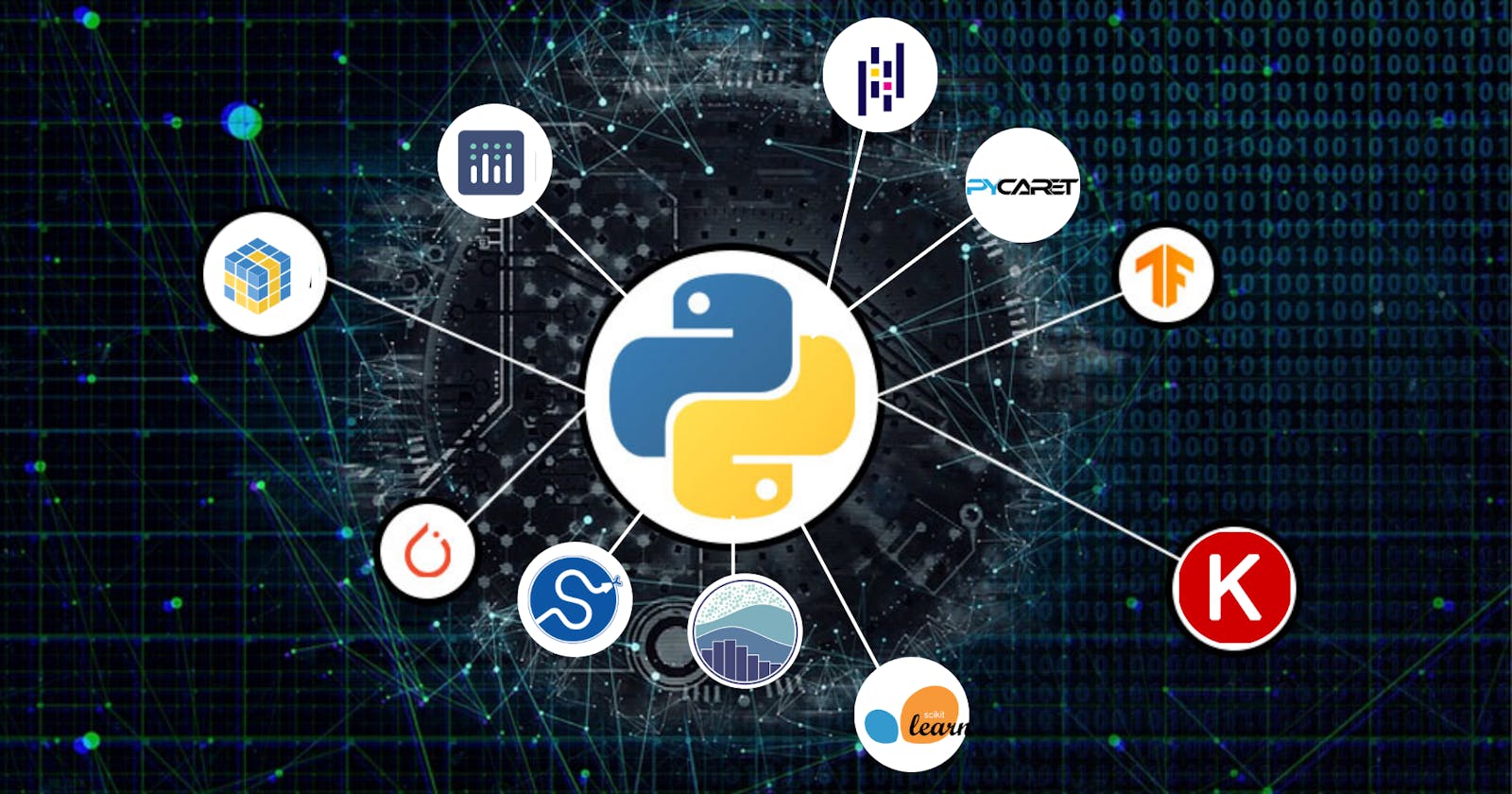Python has a vast number of libraries, covering a wide range of domains, such as data science, machine learning, web development, game development, scientific computing, and more. Here are some commonly used libraries in Python:
NumPy - A library for scientific computing with Python. It provides a multidimensional array object, mathematical functions, and tools for working with arrays.
Pandas - A library for data manipulation and analysis. It provides tools for working with tabular data, such as data frames, and offers functionality for data cleaning, transformation, and exploration.
Matplotlib - A library for creating static, animated, and interactive visualizations in Python. It offers a wide range of plots, charts, and graphs, and provides fine-grained control over the appearance and layout of the output.
Scikit-learn - A library for machine learning in Python. It provides tools for classification, regression, clustering, and dimensionality reduction, and offers a range of algorithms for each type of problem.
TensorFlow - An open-source machine learning framework developed by Google. It provides a set of tools for building and training deep neural networks, and has been widely adopted in industry and academia.
Django - A high-level Python web framework that follows the model-template-view architectural pattern. It provides a robust set of tools for building web applications, including a powerful ORM, a templating system, and a built-in admin interface.
Flask - A lightweight web framework that provides the bare essentials for building web applications. It is highly customizable and flexible, and is often used for building APIs or small to medium-sized web applications.
Requests - A library for making HTTP requests in Python. It provides a simple and intuitive API for sending HTTP/1.1 requests, and offers functionality for handling cookies, authentication, and more.Tasks
Create a Dictionary in Python and write it to a json File.
import json # Create a dictionary my_dict = {"name": "Shubham", "Course": "Devops", "city": "New York"} # Write dictionary to a JSON file with open("my_dict.json", "w") as f: json.dump(my_dict, f)THAT'S ALL FOR TODAY'S LEARNING I HOPE YOU LEARN SOMETHING FROM THIS BLOG

